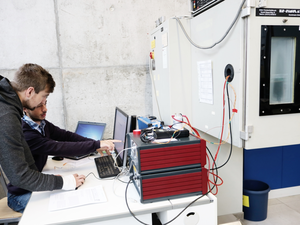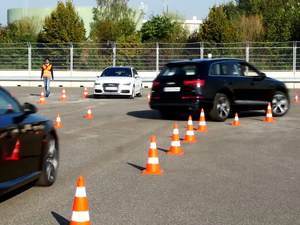Electrical engineering is shaping the mobility of the future! Knowledge of electromobility and energy storage is no longer only required for the development of cars or bicycles, but is also needed in robotics, railway technology, conveyor technology and increasingly in medical technology. The degree programme is characterised by an intensive cross-reference to other fields of application, a high proportion of practical work during the course and its broad applicability in various branches of industry. Our graduates choose from a wide range of fields of activity. They plan and develop components, systems and functions for hybrid and electric vehicles or other transport systems. In the power electronics specialisation - one of the central components of every electric drive train, electric drives and energy storage systems - control engineering, as well as simulation and modelling, are central.
This degree course is held in German!
What are the career prospects in electrical engineering? Is e-mobility still in demand?
The labour market opportunities and earning potential for our graduates are very good. Students establish contacts with companies at an early stage during the practical semester and during an industry-related Bachelor's thesis. Areas of employment can currently be found in all industrial and service sectors, in traditional electrical engineering as well as in automotive engineering. The story of the car battery is far from over; innovative solutions, new materials and, above all, the question of resource-saving and, ideally, recyclable energy storage systems will keep electromobility busy for a long time to come.

![[Translate to English:] [Translate to English:]](/fileadmin/_processed_/2/e/csm_DSC05085_b_ca5a5bbcaf.webp)







![[Translate to English:] Logo Akkreditierungsrat: Systemakkreditiert](/fileadmin/_processed_/2/8/csm_AR-Siegel_Systemakkreditierung_bc4ea3377d.webp)








![[Translate to English:] Logo IHK Ausbildungsbetrieb 2023](/fileadmin/_processed_/6/0/csm_IHK_Ausbildungsbetrieb_digital_2023_6850f47537.webp)


